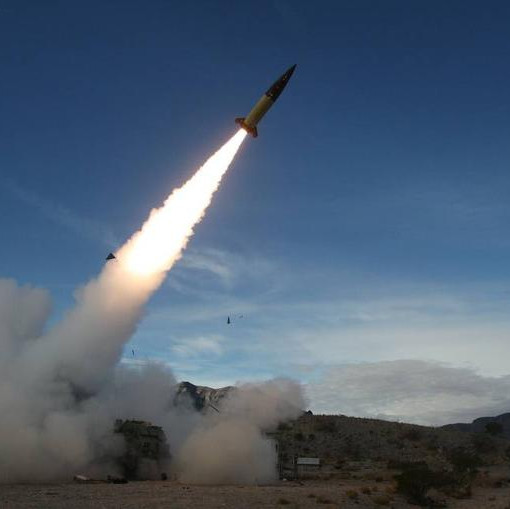The Pentagon head made that statement in an interview to the German newspaper "Handelsblatt", noting that the Bush administration has been considering "all possible variants, including a military strike" against Iran. Rumsfeld gave to understand that the Iranian nuclear program is a direct threat to Israel – the main ally of the US in the Middle East.
He also mentioned the anti-Israeli invective loosed by Iran's president Mahmoud Ahmadi-Nejad and said that "any government claiming that Israel has no right to exist is in fact announcing its possible course of action in the future". The Pentagon head also called Iran "a main sponsor of such terrorist organizations as Hezbollah and Hamas".
Analyzing Rumsfeld's anti-Iran rhetoric, many international observers come to the conclusion that it reflects Washington's growing irritation, belligerence and intolerance toward Iran stemming from the recent, unfavorable for the US and Israel turn of events in the Middle East. The victory of Hamas at the Palestinian polls and Iran's unquenchable determination to continue its nuclear program despite the threat of international sanctions, against the background of the growing chaos in Iraq and Afghanistan, have dealt a serious blow at US strategic plans for a fundamental political reorganization of the "Greater Middle East".
The White House and the Pentagon believe that it is Iran who is behind the current problems that the US is having with the Shiite community in Iraq and also the "unexpected" victory of Hamas at the Palestinian parliamentary election. In this situation the "hawks" in the Bush administration are itching to "radically" solve the Iran problem. Israel, being extremely worried by Tehran's determination to go on with its nuclear program and by the Iran-sponsored "terrorists" coming to power in Palestine, has also been urging the United States, through its US Congress lobby, to take "resolute measures" against the Iran regime.
However, as a number of experts warn, the possibility of using military force against Iran is fraught with too many unknown quantities, extremely high risks and very probable dangerous turns in the development of not only regional, but also general international situation.
Understandably, if it comes to a prewar situation developing, Tehran would immediately walk out of all treaties, including the Nuclear Non-Proliferation Treaty, drastically cut down oil and gas exports to the world markets, speed up full-scale implementation of its nuclear program in all fields and carry out massive military mobilization of the population.
At present, only the US has in principle the power to undertake a direct military intervention in Iran, to be possibly joined by Great Britain and a few other countries. A broad international coalition is hardly likely to be formed under the present conditions, considering the grievous Iraqi experience. Moreover, the US itself, with its army badly battered by the guerrilla wars in Iraq and Afghanistan, is not fit to undertake a large-scale invasion of a big Muslim country wielding considerable military potential.
Besides, a new armed intervention by the US in a Muslim state would surely cause a new outburst of hatred in the whole of the Islamic world toward the US and the West as a whole, and thus deal a fateful blow to Washington's global interests. An alternative to a large-scale invasion and occupation of Iran would seem delivering a series of limited pin-point strikes against its key political, military and economic facilities.
Experience shows that such strikes can be delivered by sea-based and air-based cruise missiles without their carriers entering Iran's air space or territorial waters. At present there is a powerful strike force of the US Navy in the Persian Gulf, led by the newest nuclear-powered aircraft carrier "Ronald Reagan". It comprises deck aircraft, surface ships and submarines carrying cruise missiles. Also, strategic bombers B-2 "Spirit" based at Diego Garcia Island in the Indian Ocean may be brought into action. Air- and sea-based strikes may be complemented by acts of sabotage by commandos infiltrated onto Iran territory.
Another possible military scenario (politically less harmful to the US) is Israel air-raiding Iran's nuclear facilities, with a corresponding US intelligence, material, diplomatic and other support. However, such a strike, even if it were successful, can hardly be expected to solve "the Iran problem". Sooner, it would cause a very unpleasant to the West response reaction and would only consolidate the Iranian people around the current regime.
As is known, Iran already has missile weapons capable of hitting oil and gas facilities in the Persian Gulf region. All countries of the Persian Gulf, Turkey and all territory of Israel are within reach of Iran's ballistic missiles "Shahab-3" with a range of up to 2,000 km and capable of carrying up to 1,000 kg of explosives. True, these missiles are considered rather vulnerable as it takes at least one hour to fill them up with liquid fuel before launching.
However, at the end of last year the Western press published reports of Iran having allegedly bought, from North Korea, 18 medium-range mobile ballistic missiles BM-25, with a range of at least 2500 km. Thanks to their mobility and availability of a fuel compartment providing long-term fuel storage, these missiles assure enhanced survivability, being capable in addition to strike targets in Southern Europe. Finally, Iran has at least 12 cruise missiles "Raduga " ("Rainbow") X-55 featuring low radar visibility capability, bought in 2001 from Ukraine, with a range of up to 3,000 km and already capable of reaching Germany. Western experts do not rule out that over the past years Iran could have put up production of its own modification of the X-55 missile.
After the first strikes at its facilities Iran would be quite able to strike back delivering crushing response blows on Israel and US bases in the Persian Gulf, blocking up the Straits of Hormouz, and instigating an anti-American uprising by Iraqi Shiites and a wave of terror by Palestinian radicals against Israel. Oil prices would go up to at least $150 a barrel, which would mean an economic disaster for many countries. As a result, the whole world may be plunged in a situation of instability and chaos.
Of course, it is not to be ruled out that the Pentagon chief's statements are part of a plan to exert psychological pressure on the Iranian government. But it would also be folly to exclude the possibility of the US and its close allies having made plans to deliver a military blow on Iran. In view of it all, one can say that the world is very possibly on the verge of a new big war in the Near and Middle East.
Many factors may come into play for such a prospect to become a sinister reality, but one thing is certain: it would correspond to the higher interests of all the world community to prevent the Iran nuclear crisis from growing to a military confrontation.









